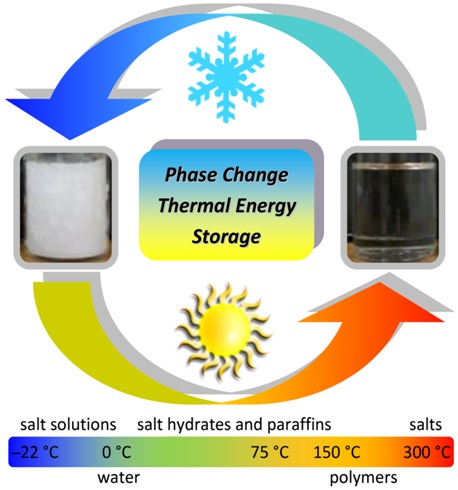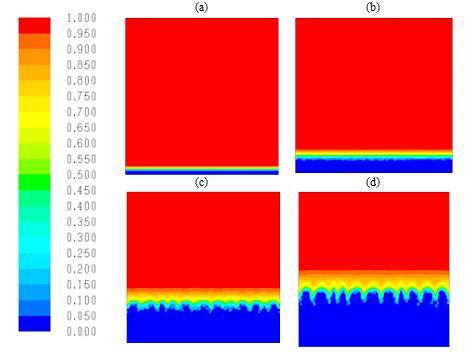
First result















Development of stable and functionality-proven NEPCM and its utilization in a wide range of energy-related applications within the framework of an inter-disciplinary DoE/EPSCoR-sponsored Implementation Grant Research Cluster started in August 2009. Exploiting the enhanced thermal conductivity of dilute nanoparticle suspensions is the key element to the development of this class of NEPCM. The target NEPCM will be obtained through dispersion of copper-based nanoparticles within paraffins (a group of alkane hydrocarbons). Various preparation schemes for realizing stable suspensions of copper and copper-oxide nanoparticles in paraffins are planned. Through a series of logical chemical preparation steps, stabilized suspensions will be prepared. Thermal conductivity, viscosity, latent heat, melting temperature and specific heat measurements will be collected for the prepared suspensions. These measurements will be used to establish the stability of the prepared suspensions upon subjecting them to consecutive melting-convection-solidification cycles.
In addition to the fabrication and characterization issues, closely-coordinated projects on five campuses will address challenging problems in relation to multi-scale/multi-physics noncontinuum modeling, separation/reclamation, enhancement of tribological properties of nanoparticle-laden paraffinic oils and heat dispersion properties. Particular attention will be placed on tailoring of appropriate NEPCM to diverse applications such as high-power electronics, machine efficiency, thermal storage/comfort and building materials. The multi-campus Cluster will complement the existing energy research in Alabama through initiating a unique high-tech energy research program, training of scientists/engineers and laying the groundwork for a variety of high-volume new products. The researchers of the Cluster will collaborate with DoE National Laboratories and relevant industries.